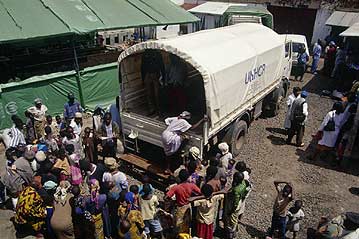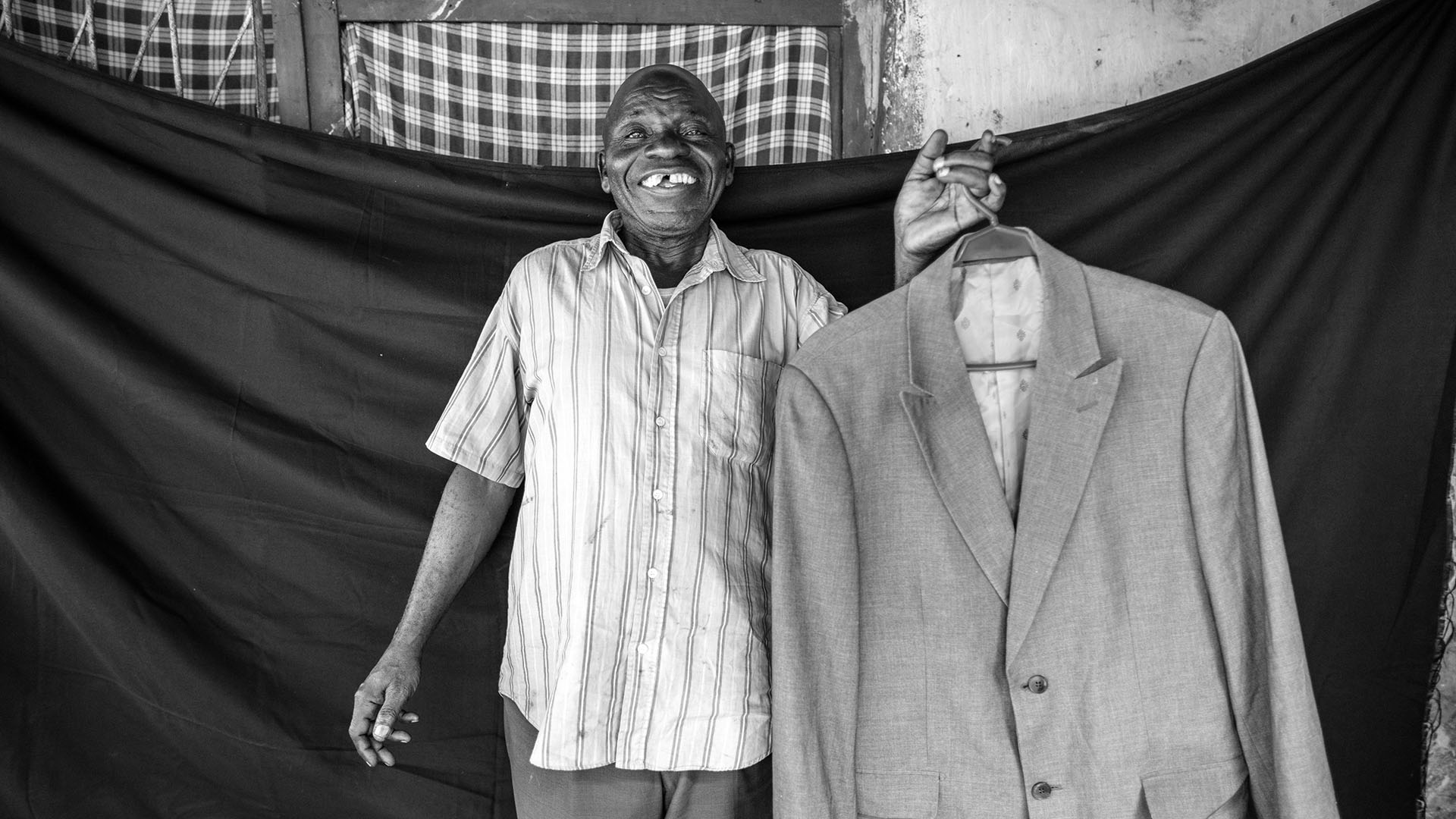Sharp rise in Rwandan returnees from Congolese forest
Sharp rise in Rwandan returnees from Congolese forest

BUKAVU, Democratic Republic of the Congo, May 24 (UNHCR) - The number of Rwandan refugees returning home from the Congolese forest has increased dramatically since a Rwandan rebel group's recent announcement that it would disarm and go home peacefully.
In the last week alone, more than 230 Rwandan refugees have volunteered to repatriate from eastern Democratic Republic of the Congo (DRC), bringing to more than 3,700 the total number of Rwandans returning home from the DRC with UNHCR assistance so far this year.
April saw more than 1,300 Rwandan returnees from the DRC's North and South Kivu provinces, compared with just over 800 returnees in April last year.
"The recent increase in returns coincides with an announcement on March 31 by the FDLR [Forces Démocratiques de Libération du Rwanda], a Rwandan rebel militia group, that it would disarm and peacefully return to Rwanda," UNHCR spokeswoman Jennifer Pagonis told reporters in Geneva on Tuesday. "The return numbers change weekly, seemingly related to whether or not Rwandan civilians are allowed to leave FDLR-controlled areas."
Tens of thousands of Rwandan refugees have been living scattered over isolated areas in the Kivus since 1996, when the refugee camps they stayed in were attacked. Their life in the forest is extremely hard, and most of them come out in very bad health, especially the children.
Following the pattern of dispersed displacement, UNHCR has set up 17 assembly points on the edge of the forest where refugees who want to return home can gather. The assembly points have been established in deep forest and remote areas, some of them more than three hours' drive from Goma or Bukavu on tracks cutting through the tropical bush.
The refugees often arrive at the assembly points in appalling condition after walking long distances through the bush. UNHCR provides them with new clothing and meals, and treats diseases like parasites, skin infections and malaria during their stay, which lasts two or three days. The refugees are then transferred to a transit centre in Bukavu or Goma before being transported home to Rwanda.
"In light of the sharp increase of Rwandan refugees wanting to return home, we are currently expanding our capacity on the ground and will shortly open several new assembly points in the Kivus," said Pagonis.
She noted that UNHCR is working in close cooperation with MONUC, the UN's peacekeeping mission in the DRC. The refugee agency only assists civilians to return home, while MONUC is responsible for the return of FDLR fighters and their dependants. Rwandan combatants approaching one of UNHCR's assembly points are referred to MONUC.
UNHCR has repatriated more than 77,000 people to Rwanda since the start of the operation in 2000. If the FDLR militia fulfils its pledge of disarmament and return, the number of returns is expected to increase dramatically in the next few months. There are an estimated 40,000 Rwandan refugees still in eastern DRC.
By Marie-Hélène Verney and Jens Hesemann








